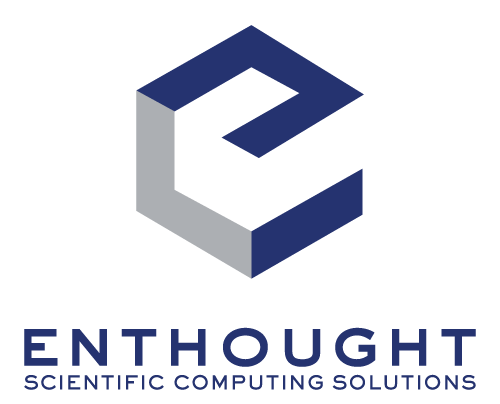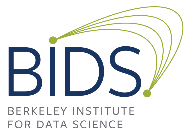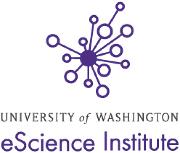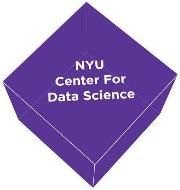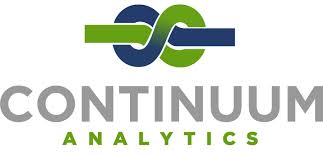| Bagrat Amirbekian University of California, San Francisco | |
| Ankur Ankan | |
| Tiago Antao | |
| Damian Avila Continuum Analytics | |
| Michael Aye LASP | |
| Paige Bailey Chevron | |
| James A. Bednar University of Edinburgh | |
| Cesar Beneti SIMEPAR - Sistema Meteorológico do Paraná | |
| Sebastian Benthall Berkeley School of Information | |
| Jean Bilheux Oak Ridge National Laboratory | |
| Evan Bolyen Northern Arizona University | |
| Blake Borgeson Recursion Pharmaceuticals | |
| Erik Bray Space Telescope Science Institute | |
| Lori Burns Georgia Tech Chemistry | |
| Howard Bushouse Space Telescope Science Institute | |
| Matthias Bussonnier UC Berkeley BIDS / IPython / Jupyter | |
| Chris Calloway UNC RENCI | |
| Luke Campagnola University of North Carolina, Chapel Hill | |
| Thomas Caswell Brookhaven National Laboratory | |
| Bryan Chastain University of Texas, Dallas | |
| Winnie Cheng Chief Data Scientist Bankrate | |
| Phillip Cloud Continuum Analytics | |
| Rowan Cockett The University of British Columbia | |
| Roberto Colistete Junior UFES - Federal University of Espirito Santo (Brazil) | |
 | Andrew Collette University of Colorado, Boulder Andrew Collette is a research scientist at the University of Colorado’s IMPACT accelerator facility, a NASA-funded research center for laboratory investigation of hypervelocity micrometeoroid impacts. He holds a Ph.D. in Physics from UCLA, and in 2013 founded Heliosphere Research, a consulting and software development company serving the Python and LabVIEW communities. Andrew wrote the O’Reilly book Python and HDF5, and is the lead developer of the h5py project. |
| Scott Collis Argonne National Laboratory | |
 | Yannick Congo NIST/Blaise Pascal University I am currently a guest researcher at NIST and a PhD student in Software Engineering from the EDSPI doctoral school at the Blaise Pascal University in Clermont-Ferrand, France. I focus on standards to enhance the reproducibility of computational results and to bring more automation to all scientific computations. My previous work was on OOF (Object Oriented for Finite elements analysis) at NIST. |
| Carlos Cordoba Continuum Analytics | |
| Matthew Craig Minnesota State University Moorhead | |
| Nicola Creati OGS | |
| James Crist Graduate Student University of Minnesota Jim is a graduate student at the University of Minnesota, studying Mechanical Engineering. He is a core contributor to both the SymPy and PyDy projects, and uses these packages in a workflow to do everything from modeling dynamic systems to testing estimation and control algorithms. | |
| Mellissa Cross | |
 | David Dotson Arizona State University David Dotson is a Ph.D. student in Oliver Beckstein's computational biophysics lab in the Center for Biological Physics at Arizona State University. David specializes in deconstructing the detailed molecular mechanisms of membrane proteins using atomistic simulations, and spends much of his time writing code to distill useful information from the ever-growing volume of simulation data we can now produce. Although his background is in physics, his interests and strategies for dissecting problems in molecular mechanics are increasingly taking cues from the data science world. David is a contributor to MDAnalysis and the author of MDSynthesis, a new python package aimed at making interactive molecular dynamics data exploration efficient and fun. |
| Zubin Dowlaty Mu Sigma | |
 | Allen Downey Professor of Computer Science Olin College Allen Downey is a Professor of Computer Science at Olin College and author of Think Python, Think Stats, Think Bayes, Think Complexity, and several other computer science books. He holds B.S. and M.S. degrees from MIT and a Ph.D. in Computer Science from U.C. Berkeley. He has previously taught at Colby College and Wellesley College, and was a Visiting Scientist at Google, Inc. |
 | Chris Drake Engineer Prior to joining Google, Chris worked at Intel for nine years, doing various things related to chip design and validation. He graduated from University of Michigan, Ann Arbor, with an MS in computer engineering. Chris has a passion for Python, and anything related to digital logic. He created PyEDA (pyeda.rtfd.org) as a hobby project, and hacks on it in his spare time. He lives in Mountain View, CA, with his wife and two children. https://github.com/cjdrake |
| Scott Draves Two Sigma Open Source | |
| Michael Droettboom Space Telescope Science Institute | |
| Haitham Elmarakeby Virginia Tech University | |
| Philip Elson Met Office | |
| Loïc Estève Inria | |
| Carson Farmer University of Colorado, Boulder | |
| Filipe Fernandes SECOORA | |
 | Chris Fonnesbeck Assistant Professor, Department of Biostatistics Vanderbilt University School of Medicine Chris is an Assistant Professor in the Department of Biostatistics at the Vanderbilt University School of Medicine in Nashville, TN. He specializes in computational statistics, Bayesian methods, meta-analysis, and applied decision analysis. Chris started the PyMC project, a package for Bayesian statistical analysis in Python, and continues as a PyMC developer today. He originally hails from Vancouver, BC and received his Ph.D. from the University of Georgia. |
| Justin Foong The Hospital for Sick Children | |
| Anderson Gama SIMEPAR - Sistema Meteorológico do Paraná | |
| Eleftherios Garyfallidis University of Sherbrooke | |
| Scott Giangrande Brookhaven National Laboratory | |
 | Robert Grant Scientific Software Developer Enthought Robert is a Scientific Software Developer at Enthought. He holds a B.S., an M.S.E., and a Ph.D. in Electrical Engineering from the University of Texas at Austin. Before joining Enthought, he was a researcher in the areas of wireless networking and software engineering, publishing on software-defined radio, rate-adaptation in wireless networks, and the evaluation of instructable software agents. |
| Perry Greenfield Space Telescope Science Institute | |
 | Kevin Gullikson University of Texas Kevin Gullikson got a bachelors degree in Physics at Illinois Institute of Technology, and is currently pursuing a PhD in astrophysics from the University of Texas. His research focuses on searching for and characterizing companions to hundreds of nearby stars, as part of an effort to learn about how the companions may have formed. He maintains an active presence on github[1] and has developed a python package to fit and remove the absorption from the Earth's atmosphere in astronomical spectra[2]. Kevin plans to graduate with his PhD next Spring, and is interested in the field of data science and machine learning. [1]: https://github.com/kgullikson88 [2]: http://www.as.utexas.edu/~kgulliks/projects.html |
| Nick Guy University of Wyoming | |
| Jonathan Guyer NIST | |
| Matt Hall Agile Geoscience | |
| Jessica Hamrick University of California, Berkeley | |
| Johanna Hansen Woods Hole Oceanographic Institution | |
| Lindsey Heagy University of British Columbia: Geophysical Inversion Facility | |
| Brian Helba Kitware Inc | |
| Jonathan Helmus Argonne National Laboratory | |
| Ian Henriksen Brigham Young University | |
| Maik Hiestermann University of Potsdam | |
| Bill Hoffman Kitware | |
 | Stephen Hoover Data Scientist Civis Analytics Stephen Hoover is a Data Scientist at Civis Analytics, where he develops machine-learning algorithms to power the Civis cloud-based data science platform. His background is in physics and cosmology, where he used first C++ and then Python to build data analysis pipelines for astrophysical observations. His passion is building software tools to extract meaning from raw data. |
| Stephan Hoyer The Climate Corporation | |
| Jaime Huerta-Cepas EMBL | |
 | Kathryn Huff Fellow University of California, Berkeley Kathryn (Katy) Huff is a Fellow with the Berkeley Institute for Data Science and a postdoctoral scholar with the Nuclear Science and Security Consortium at the University of California Berkeley. In 2013, she received her Ph.D. in Nuclear Engineering from the University of Wisconsin Madison. She also holds a bachelor's degree in Physics from the University of Chicago. She has participated in varied research including experimental cosmological astrophysics, experimental non-equilibrium granular material phase dynamics, computational nuclear fuel cycle analysis, and computational reactor accident neutronics. She is a co-author of the new O'Reilly book "Effective Computation in Physics," was a co-founder of The Hacker Within, and has been an instructor for Software Carpentry since 2011. Among other professional service, she is the Chair of the Software Carpentry Foundation Steering Committee, a division officer in the American Nuclear Society, and has served three consecutive years as a SciPy organizer. |
| Jacob Hummel University of Texas, Austin | |
| Jeannie Irwin University of Pittsburgh | |
 | Kelsey Jordahl Scientific Software Developer Enthought Kelsey is a geophysicist and scientific software developer who works on computational problems and data visualization. He has taught college courses from introductory science classes to graduate level seismology, and currently teaches weeklong python training courses for scientific and financial audiences. He holds a Ph.D. in marine geophysics from the MIT/Woods Hole Oceanographic Institution Joint Program in Oceanography. |
| Alec Kaija | |
| Wei Kang GeoDa Center for Geospatial Analysis & Computation | |
 | Kyle Kastner Graduate Student Université de Montréal My passion is designing and analyzing cross-disciplinary scientific experiments and statistical models. |
| Jackie Kazil | |
| Kyle Kelley Rackspace | |
| Hyungtae Kim University of California, Irvine | |
| Brad King Kitware | |
| Joe Kington Chevron | |
| Irma Kramer PyLadies, Austin | |
| Juliana Leonel Universidade Federal da Bahia | |
| Rich Lewis University of Cambridge | |
 | David Lippa Principal Software Engineer RealMassive As Principal Software Engineer at RealMassive, David Lippa has designed and implemented the search and recommendation engine of the RealMassive platform that currently covers over 4.5 billion square feet of commercial real estate inventory. Prior to joining RealMassive, Mr. Lippa was a Senior Software Engineer who was deeply involved in the development of algorithms, graphical user interfaces (GUIs), data structures in a variety of domains, programming languages, and environments. In his spare time, Mr. Lippa likes to volunteer his time in the industry as a closed beta tester and with non-profits to further the pursuit of Science, Technology, Engineering, and Math (STEM) fields for secondary school students. Mr. Lippa graduated with both a B.A. and M.A. in Computer Science from Brandeis University. |
| Margaret Mahan | |
| Subir Mansukhani Mu Sigma | |
| David Masad George Mason University | |
| Ryan May UCAR/Unidata | |
| Amelia McBee Henriksen Brigham Young University | |
| Matthew McCormick Kitware | |
| Brian McFee New York University | |
| Michael McKerns UQ Foundation | |
 | Keynote Speaker: Wes McKinney Software Engineer, author of pandas (Python Data Analysis Library) Cloudera Wes McKinney is a software engineer at Cloudera. Prior to that, Wes was co-founder of DataPad, and CTO and Cofounder of Lambda Foundry, Inc. From 2010 to 2012, he served as a Python consultant to hedge funds and banks while developing pandas, a widely used Python data analysis library. From 2007 to 2010, he researched global macro and credit trading strategies at AQR Capital Management. He graduated from MIT with an S.B. in Mathematics. Wes is author of the O'Reilly book Python for Data Analysis. |
| Aaron Meurer | |
| Steve Miller Oak Ridge National Laboratory | |
| Michael Milligan Minnesota Supercomputing Institute, University of Minnesota | |
 | Ross Mitchell Professor of Radiology, Mayo Clinic College of Medicine Mayo Clinic Arizona Dr. Mitchell has a proven research track-record comprising 110 reviewed publications, including 25 patents and applications, 120 invited presentations, and over 200 published abstracts. His research is focused on new algorithms to extract information from medical images to improve the diagnosis, treatment, visualization and monitoring of disease. He was recruited from Canada to Mayo Clinic Arizona in 2011 to build a new Division of Medical Imaging Informatics. He is a Co-Founder and the Founding Scientist of Calgary Scientific Inc. (CSI). CSI manufactures the only cloud-based zero-footprint tele- radiology system cleared for diagnostic use with all medical imaging modalities (except mammography) on web browsers, iOS and Android devices. This technology is licensed by numerous companies and is available in over 30 countries around the world. |
| Jason Moore Lead Developer PyDy Jason is a lead developer with both the PyDy and SymPy projects. He utilizes both packages to run optimal control algorithms for biomechanical systems, in particular data driven powered prosthetic designs. He is a strong proponent for Open Science and has a PhD in Mechanical and Aerospace Engineering from UC Davis. | |
| Kai Muehlbauer University of Bonn | |
 | Andreas Mueller New York University Center for Data Science Andreas is an Assistant Research Scientist at the NYU Center for Data Science, building a group to work on open source software for data science. Previously he worked as a Machine Learning Scientist at Amazon, working on computer vision and forecasting problems. He is one of the core developers of the scikit-learn machine learning library, and maintained it for several years. His mission is to create open tools to lower the barrier of entry for machine learning applications, promote reproducible science and democratize the access to high-quality machine learning algorithms. |
| Ana Nelson Cosmify, Dexy | |
| Stephen Nesbitt University of Illinois | |
| Tim O'Donnell Mount Sinai School of Medicine | |
| Richard Otis Pennsylvania State University | |
 | Michael Pacer Graduate Student University of California, Berkeley Mike Pacer is a graduate student at the University of California at Berkeley. He studies how people think and behave in order to embed that thinking and behavior in computational systems. Mike specializes in finding new kinds of problems inspired by human cognition, and developing the formal tools for encoding those problems. For example, he studies continuous-time causal induction, formal models of causal explanation, and computational approaches to the history and philosophy of science. |
| Randy Paffenroth Worcester Polytechnic Institute | |
| Abinash Panda | |
| Franco Pestilli Indiana University | |
| Michka Popoff | |
| Cory Quammen Kitware | |
| Min Ragan-Kelley IPython | |
| John Readey HDF Group | |
| Andrew Reid NIST | |
| Sergio Rey GeoDa Center for Geospatial Analysis and Computation | |
| Jai Ram Rideout Northern Arizona University | |
| Adam Robbins-Pianka University of Colorado, Boulder | |
| Ariel Rokem The University of Washington eScience Institute | |
| Benjamin Root | |
| Gudni Rosenkjaer University of British Columbia | |
 | Phil Roth Endgame As a data scientist at Endgame, Phil develops data products that help security analysts find and respond to threats. This work has ranged from tuning a machine learning algorithm to best identify malware to building a data exploration platform for HTTP request data. Previously, he developed image processing algorithms for a small defense contractor. While in graduate school for physics, Phil used a machine learning algorithm and the IceCube detector at the south pole to search for neutrinos from other galaxies. |
| Alex Rubinsteyn Mount Sinai School of Medicine | |
| Philipp Rudiger University of Edinburgh | |
| Stanley Seibert Continuum Analytics | |
| Elizabeth Seiver PLOS | |
| Sebastian Sepulveda Universidad de Valaparaiso | |
| Richard Shaw National Optical Astronomy Observatory | |
| Richard Signell USGS | |
| Brian Smith Ball State University - Deptartment of Political Science | |
 | Kurt Smith Scientific Software Developer Enthought Kurt has been using Python in scientific computing for nearly ten years, and has developed tools to simplify the integration of performance-oriented languages with Python. He has contributed to the Cython project, implementing the initial version of typed memoryviews and native cython arrays. He uses Cython extensively in his consulting work at Enthought. Throughout his undergraduate and graduate studies he used Python and Cython at every opportunity. Cython was particularly useful when developing high-performance parallel simulations of plasma turbulence for his doctoral research. Dr. Smith recently authored a book on Cython with O'Reilly and he has also trained hundreds of scientists, engineers, and researchers in Python, NumPy, Cython, and parallel and high-performance computing as part of Enthought's extensive on-site and on-line Python training |
| Nathaniel Smith University of California, Berkeley | |
| Krishna Sridhar Dato | |
| Paolo Sterzai OGS | |
| Jean-Luc R. Stevens University of Edinburgh | |
 | Kristen Thyng Assistant Research Scientist Texas A&M University Kristen Thyng is an assistant research scientist in Oceanography at Texas A&M University. Her research areas include transport processes and the physics of flows (particularly in estuaries and coastal seas), and tidal energy. She is enthusiastic about Python and computational science, and a proponent of clear and beautiful visualizations. |
| Erik Tollerud Hubble Fellow Astropy/Yale University Erik is a Hubble (Postdoctoral) Fellow at Yale University in New Haven, CT. His research interests focus on both observational and theoretical aspects of using nearby dwarf galaxies to determine the nature of dark matter and galaxy formation. He is one of the founders and coordinators of the Astropy Project, as well as author of and contributor to a variety of of other python software packages for astrophysics. He received his undergrad degree at the University of Puget Sound, and MS and PhD from the University of California, Irvine. | |
| Kester Tong | |
| Jordi Torrents NetworkX | |
| Mattheus Ueckermann Creare | |
| Bharat Upadrasta Mu Sigma | |
| Bryan Van de Ven Continuum Analytics | |
| Stefan van der Walt University of California, Berkeley Stefan van der Walt is an assistant researcher at the Berkeley Institute for Data Science and a senior lecturer in applied mathematics at Stellenbosch University, South Africa. He has been an active member of the scientific Python community since 2006, and frequently teaches Python at workshops and conferences. He is the founder of scikit-image and a contributor to numpy, scipy and dipy. | |
 | Keynote Speaker: Jake VanderPlas PhD Director of Research – Physical Sciences eScience Institute, University of Washington Jake VanderPlas is the Director of Research in the Physical Sciences at the University of Washington's eScience Institute, an interdisciplinary program designed to support data-driven discovery in a wide range of scientific fields. His own research is in astronomy, astrophysics, machine learning, and scalable computation. In addition, he is a maintainer and/or frequent contributor to many open source Python projects, including scikit-learn, scipy, mpld3 and others. He occasionally blogs about Python, machine learning, data visualization, open science, and related topics at http://jakevdp.github.io. |
| Yoshiki Vazquez-Baeza University of California, San Diego | |
 | Jason Vertrees Chief Technology Officer RealMassive As Chief Technology Officer at RealMassive, Jason Vertrees, Ph.D, leads the company’s team of scientists and engineers to ensure that RealMassive’s commercial real estate customers are receiving best-of-breed technology solutions customized to their specific business needs. Prior to joining RealMassive, Dr. Vertrees was Director of Core Modeling Products at Schrodinger. He is focused on leveraging his expertise in product strategy and user experience (UX) to best serve each of RealMassive’s customers. Dr. Vertrees graduated from the University of Texas with two Bachelor of Arts degrees: one in Computer Science and one in Japanese. He received his Ph.D. in Structural and Computational Biology and Theoretical and Computational Biophysics from the University of Texas Medical Branch. |
| Roberto Vidmar OGS | |
 | Josh Walawender Instrument Astronomer Subaru Telescope Josh Walawender is an Instrument Astronomer at the Subaru Telescope on Maunakea in Hawai’i working on maintenance and upgrades for Subaru’s FMOS and MOIRCS instruments. He has a strong interest in small robotic telescopes and time domain astronomy. Josh received his undergraduate degree from the University of California at Berkeley and his PhD from the University of Colorado at Boulder. |
| Brian Wandell Stanford University | |
 | Jonathan Whitmore Silicon Valley Data Science Jonathan Whitmore, PhD, is a Data Scientist at Silicon Valley Data Science. He has a diverse range of interests and is excited by the challenges in data science and data engineering. Before moving into the tech industry, Dr. Whitmore worked as an astrophysicist in Melbourne, Australia, researching whether the fundamental physical constants have changed over the age of the universe. He has a long-standing commitment to the public understanding of science and technology, and has contributed to FOSS projects. He co-starred in the 3D IMAX film Hidden Universe, which is currently playing in theaters around the world, and is a sought after conference speaker on science and technical topics. Dr. Whitmore received his PhD in physics from the University of California, San Diego, and graduated magna cum laude from Vanderbilt University with a Bachelor of Science triple major in physics (with honors), philosophy, and mathematics. |
| Mark Wickert University of Colorado | |
| Mark Wiebe Thinkbox Software | |
 | Keynote Speaker: Chris Wiggins Chief Data Scientist; Associate Professor of Applied Mathematics The New York Times & Columbia University Chris Wiggins is Chief Data Scientist at The New York Times, an associate professor of applied mathematics at Columbia University, and the co-founder and co-organizer of hackNY. At Columbia he is faculty in the Department of Applied Physics and Applied Mathematics, a founding member of the Department of Systems Biology, a founding member of the Data Science Institute, affiliated faculty in the Department of Statistics, and an instructor in the School of Journalism. His research focuses on applications of machine learning to real-world data, particularly biology. Prior to joining the faculty at Columbia he was a Courant Instructor at NYU and earned his PhD at Princeton University in theoretical physics. In 2014 he was elected Fellow of the American Physical Society and is a recipient of Columbia's Avanessians Diversity Award. |
| Kyle Wilcox Axiom Data Science | |
| Christopher Wilmer University of Pittsburgh | |
| Andrew Yan USGS | |
| Wenduo Zhou Oak Ridge National Laboratory | |
| En Zyme Proteasome Digest | |
Austin, Texas • July 6-12, 2015

